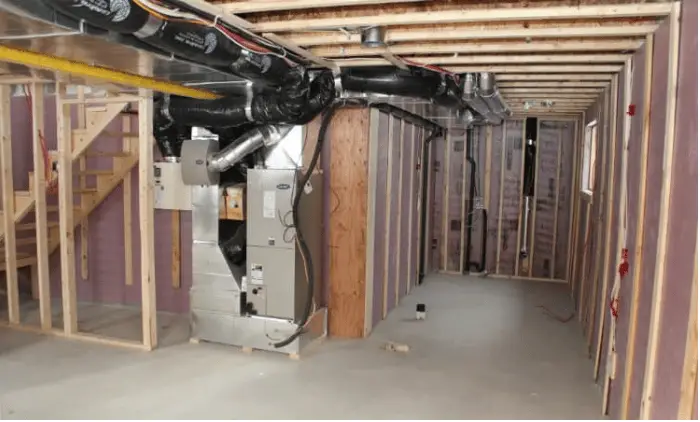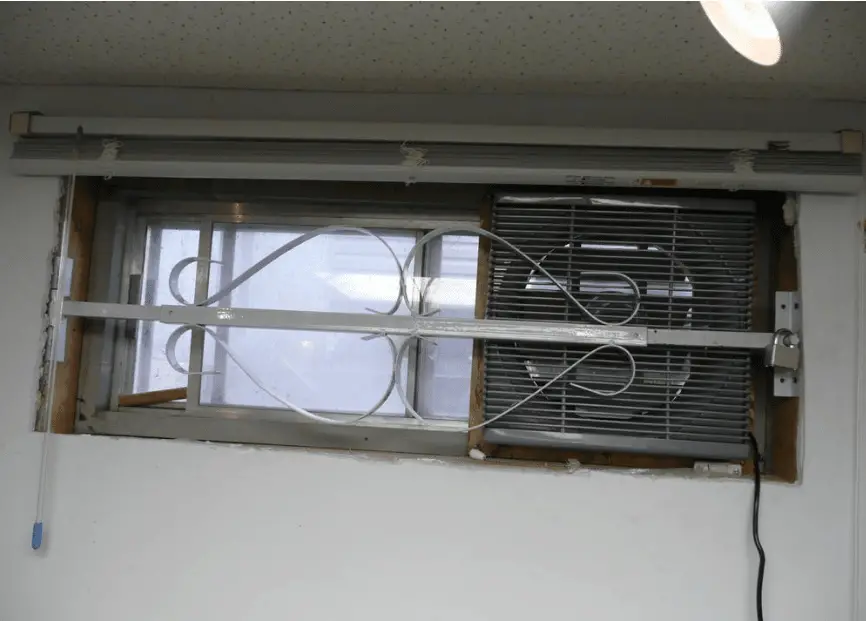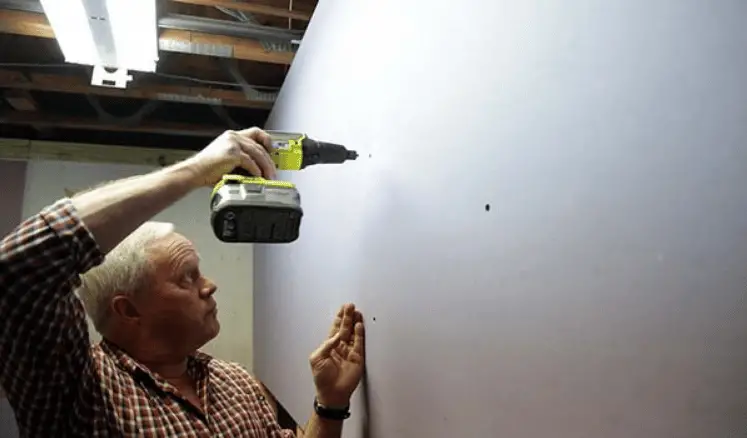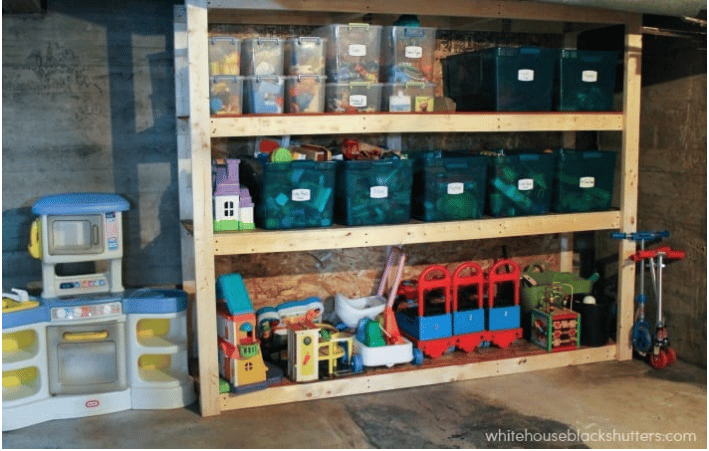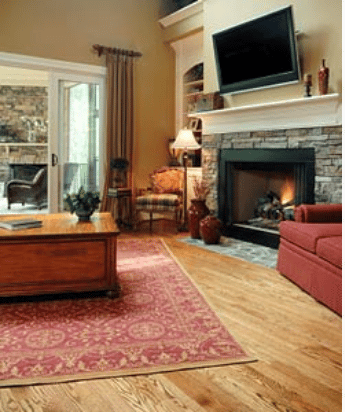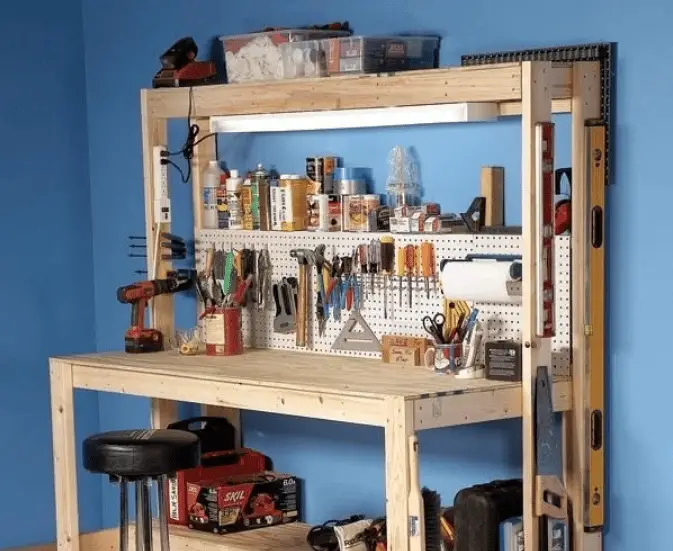You need a workshop for home projects or personal projects, but you dread the hike out to your shed, or maybe you don't even have a workshop yet. You've got plenty of room in the basement, and it would be a convenient place, but there are a few hurdles you have to get over first. These Basement Workshop Ideas will help you design your workshop to create a comfortable place to work on projects in your home.
1) Assembly Required
One of the major drawbacks of a basement workshop is the stairs. You've got to climb up and down them to use the workshop, sure, but you've also got to carry every project, material, or piece of furniture up and down, and that's...not fun. You can save yourself a little hassle by buying kits like this or making workbenches yourself so that you don't have to carry complete pieces of furniture up and down unless it's part of your latest project.
2) DIY Soundproofing
If you're going to be doing loud projects in your workshop, the other occupants of the house might object to the sound of a band saw drowning out the TV. One great way to isolate the basement and keep the noises from carrying is to soundproof the basement. If this idea sounds like something you need to keep your home quiet while you're working, check out this Better Soundproofing article to learn how to soundproof your basement ceiling.
3) Floor Paint
Your basement has a concrete floor, which probably seems like the perfect type for a basement, but concrete can get cracks and damage over time, too. One good way to seal it to keep out water and prevent further damage is to paint the floor, which you can do using this video tutorial. This will keep out moisture from existing cracks and help keep it from being cracked or damaged more by moisture, frost, or wear and tear from workshop projects. It's also easy to put a different type of flooring over it later.
4) Workshop Man Cave
A basement is a great place to play with personal projects since it's quiet and isolated so that you can concentrate on anything you're doing. This also makes it a great hangout or escape if you need one, and if you want to relax while doing workshop projects, you should be able to. Think about turning the basement into a workshop man cave with decorations, dartboards, and signs like this so that you can enjoy yourself in more ways than one.
5) DIY Exhaust Fan
One thing you'll want to check if your basement is only being used for storage right now is the air quality. Is it safe to spend a lot of time down there with whatever paints, varnishes, or other things you use down there? Chances are, you'll want some sort of ventilation, but you might not be sure how to install it so that it works the way you need it to. You can read up on how to install an exhaust fan for a basement in this article.
6) Garage Lights
Most basements have minimal lighting, but you really need bright light for a workshop. Think about setting up garage lights like these so that you can see what you're doing and don't accidentally injure yourself! The great thing about them is that they're designed for a utility space and should be more durable than most lights, and you can put several in so that you can light small areas as needed or brighten the whole basement when you want to.
7) DIY Drywall
If your basement is unfinished, you might just be planning to set your workshop up without finishing it, but there are benefits to finishing even a workshop in a basement. If you have insulation without drywall, the particles from the insulation can get into the air and damage your lungs, and you might even have a draft through the insulation. You can use this article to install drywall yourself so that it won't cost as much, and you can have a safer and warmer space to work in.
8) Vinyl Floor Protector
If you don't want to go all-out and finish your basement, you'll still need some floor protection. One of the easiest ways to make a basement floor more comfortable and usable for a shop space is to put down a floor runner like this. You can use this diamond tread vinyl floor protector on the floor or anywhere in the workshop. It makes a great backing for workbenches, shelves, and trays, and the diamond pattern gives you tractions to keep you from sliding if something spills on the floor.
9) DIY Shelving
You'll need storage for your basement workshop, but if you've got bare concrete walls or don't have drywall, wall shelving can be difficult to build. You don't really want to have to carry a bunch of heavy free standing shelves downstairs, so your best bet is to build them in place. Check out this article from White House Black Shutters to learn how to make free-standing shelves that will stand up to workshop use so that you can build them in your basement workshop.
10) Portable Electric Heater
Basements can get cold, particularly if they're unfinished, but the whole reason you're designing an indoor workshop is so that you can stay inside where it's warm and comfortable instead of working outdoors. You'll need something to stave off the chill sometimes, but you don't need to install a new heating system. Instead, you can just get an indoor heater like this to keep it warm. Make sure to get an indoor heater that won't create toxic fumes.
11) Add Walls To Create Sections
What do you want to use your workshop for? Are you building furniture or doing wood crafts? Maybe you want to clean and repair guns, but you need to reserve workshop space for household projects. One way to give yourself plenty of space and stay organized is to build walls and create multiple rooms for different types of work. If you think you'll need this, you can watch this Youtube video to learn how to build walls in a basement to create rooms.
12) Stereo
Do you like to work in silence, or do you find that your mind wanders? Your workshop doesn't have to be all business, and there's no reason you should have to play your music from poor quality phone speakers. Think about buying some speakers like this from Amazon to install so that you can leave your phone upstairs, relax, and focus completely on your projects while listening to some music without worrying that the boss will call you.
13) Wall-Mounted TV
Some people like to work in silence, but you probably know if you're one of those people. If you're not one of those people, the silence will drive you crazy and make working almost impossible, so you'll need something like a TV or music to distract you. You might be thinking that you don't have a good spot for a TV, but with this tutorial by Bob Carlisle and Tawny Sikon, you can mount the TV to any wall, concrete or otherwise.
14) DIY Workbench Kit
Basement stairs are often narrow, steep, dim, or otherwise difficult to use. While you can't necessarily fix all these problems, you can reduce the number of bulky things you're carrying up and down them. One issue with a workshop is that a lot of the furniture you'll need will be bulky and heavy so that it can stand up to hard use. To make things a bit easier on yourself, don't buy a workbench. Since it's probably the heaviest thing you'll need, think about building it in place using a storage system or kit like this.
15) Egress Window
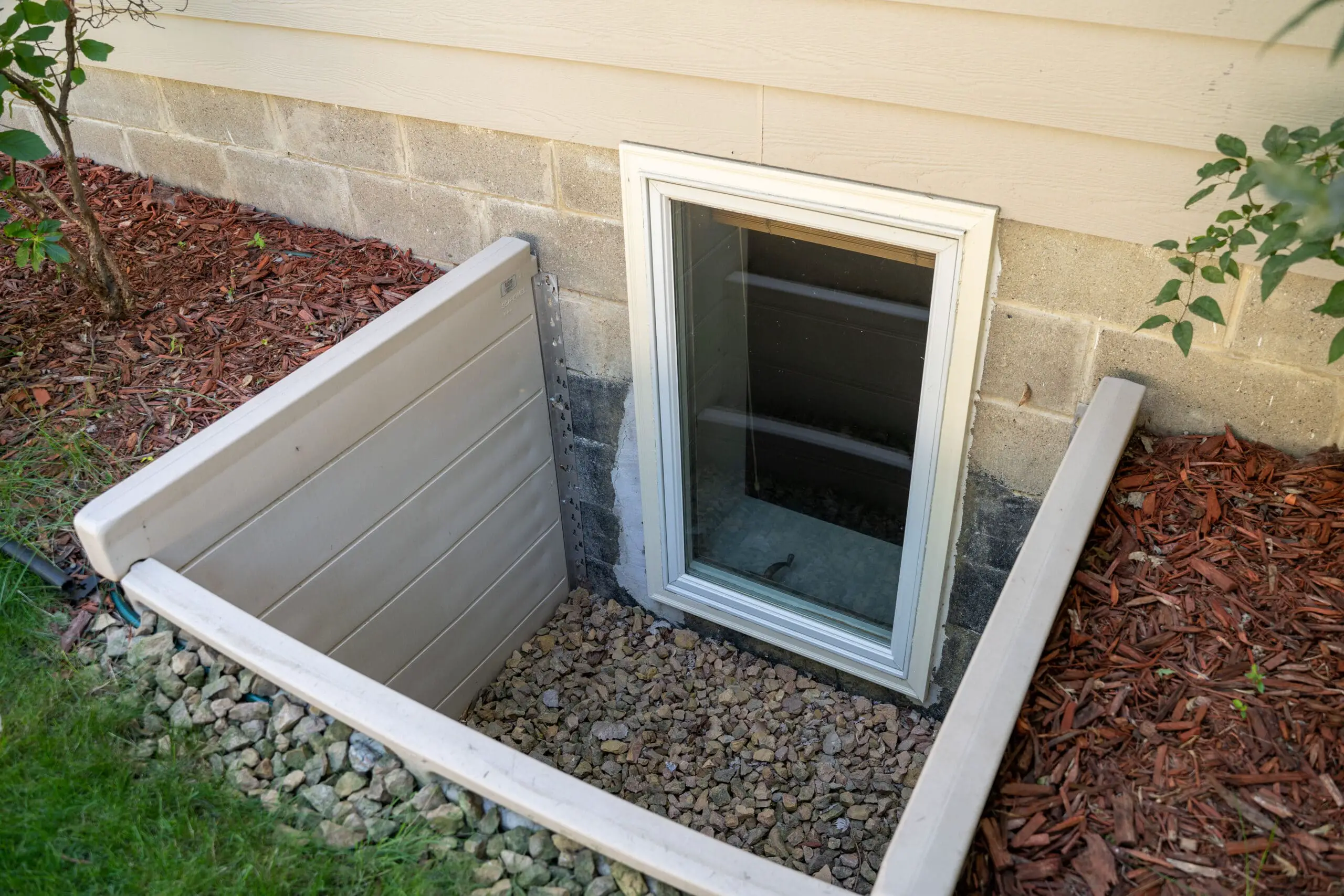
People often turn basements into living space or workspace without thinking about this, but once you start using your basement for anything other than storage, it's important to have a way out if there's a fire. This means you need a big enough window, so you'll probably need a window well. You can read about these code requirements and use them to design an egress window with the side benefit of more light coming through the larger window.
16) Shop Lights
Basements tend to be poorly lit, and if your basement is guilty of this, then you'll need to change it before you bring in table saws or whatever workshop equipment you have. Workshop equipment isn't generally very safe, so it's important to be able to see what you're doing. One great way to make sure your shop is well lit is with shop lights like these from Amazon. You can get a big pack of them for very little money, and you'll be able to see clearly.
17) DIY Workbench with Pegboard
If you have concrete walls in your basement and no finished drywall, you're probably going to run into a major storage issue. It's common to store tools on walls, but you don't want to punch a lot of holes in the concrete, and studs only have so much room to punch holes. One way to increase your storage is to build a workbench with a pegboard attached so that you can store tools on the pegboard. You can use these instructions to do so.
What kind of workshop are you making? Did we think of anything you didn't? We'd love to hear about it in the comments below!


